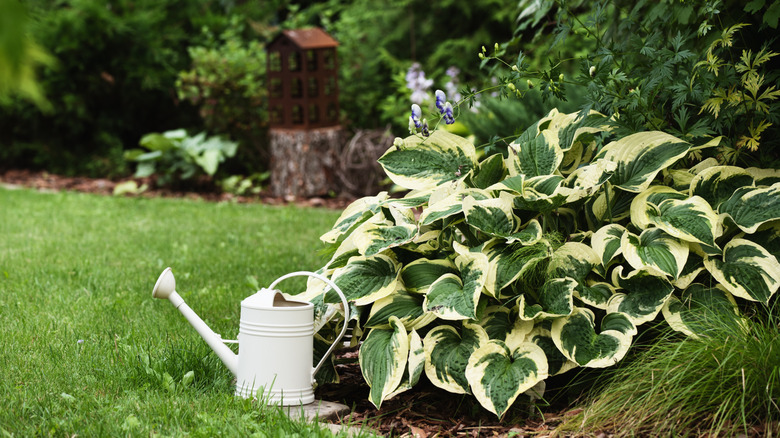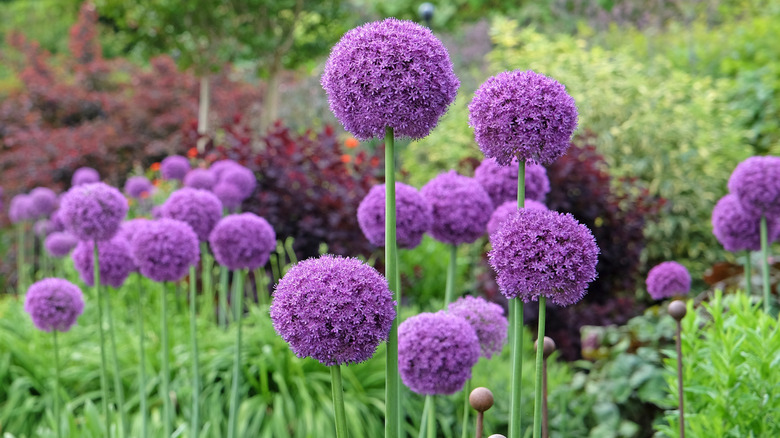Growing Healthy Hostas Is A Breeze When You Plant Them Near This Beautiful Companion
Hostas are among the most popular perennials for shade gardens. In fact, they are the most widely used ornamental perennials in all of the U.S. The reason? They are adaptable, durable, and one of the easiest plants to grow for beginner gardeners. Even inexperienced ones won't have a problem while growing hostas. And the best part? They are extremely versatile. You can put them in borders or edges, in shade gardens or ponds, use them as foliar focal points, or just plant them in groups in perennial beds. But they are not all perfect. They attract a lot of pests, especially slugs and snails, which can be a major nuisance when growing hostas.
They chew large, unsightly holes into their showy leaves and even kill the young seedlings, leaving nothing behind. That is where ornamental onions (Allium) can help. These plants contain sulfur compounds that give the plant a really strong smell. This makes them unpalatable to insects and other herbivores. These herbivores also include rabbits and deer, which also love munching on hosta leaves if they get a chance.
Planting ornamental onions to protect growing hostas
Alliums come in many varieties. You can choose the one that goes best with the design you have in your mind. There is the 'Purple Sensation' with purple flowers, and 'Gladiator,' which can grow up to 4 feet tall, and 'White Giant' allium if you want a dependable bloom that adds height and drama to dry gardens. You can put them in borders around your hostas, as they prefer full sun, and keep your hostas near the walls in dappled shade, where they perform well.
Putting ornamental onions in borders around hostas is also helpful, as they have an upright growth habit, and if you choose carefully, you can select varieties that grow in clusters and clumps. Ideally, what you want is to sort of create a wall or border around your hostas that will keep the herbivores at bay. And if you don't have space in your hosta beds, you can always turn to other varieties of onions to grow in containers. Just make sure that the conditions are not overly damp. They can make alliums prone to fungal diseases, which can affect their vigor and reduce their effectiveness.

